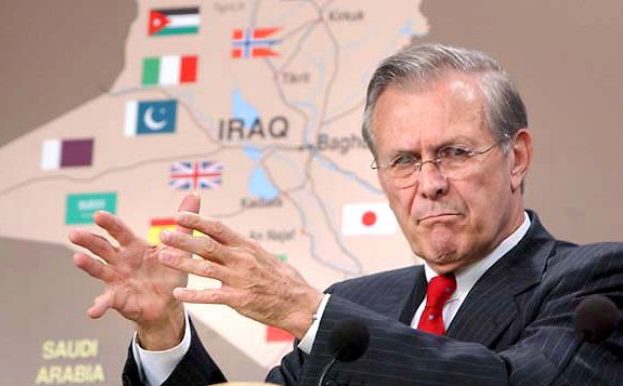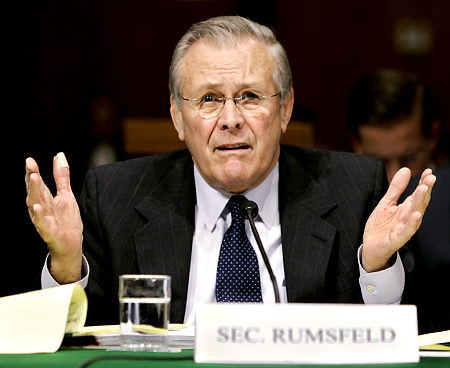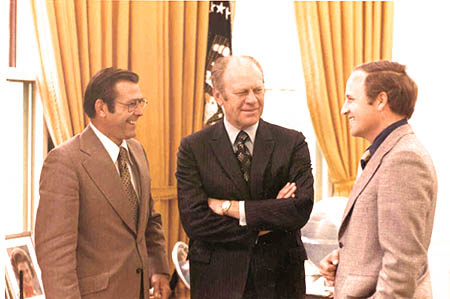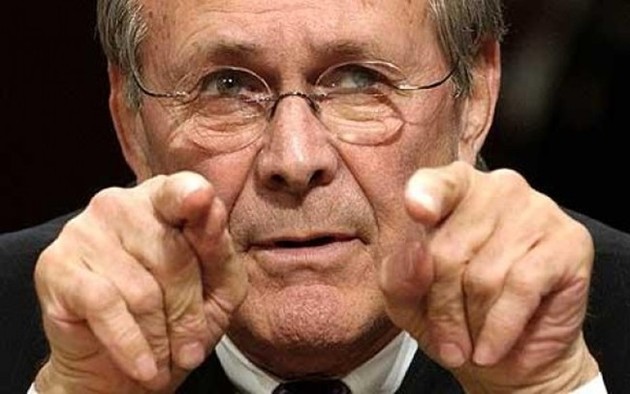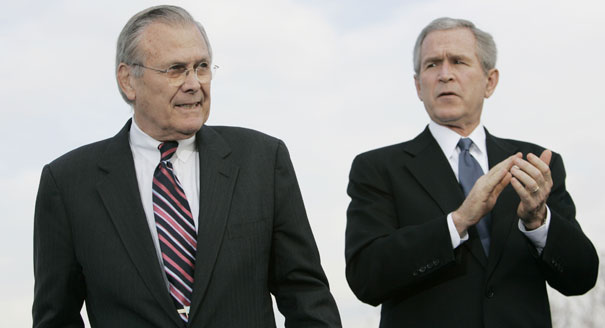I’m disappointed a relatively sober-minded person like James Baker can’t see past partisanship in regards to Donald Trump, Daddy Warbucks as an aspiring war criminal, but it’s no surprise Donald Rumsfeld supports the odious GOP nominee.
Rumsfeld, and unmitigated disaster as W’s Defense Secretary (Trump agrees), is still using his bullshit fog-of-war lexicon of obfuscation, deeming Trump a “known unknown,” and arguing Hillary should be indicted, a comment he makes without a seeming shred of self-awareness of the piles of dead bodies that were needlessly rendered such by both his willful actions and gross incompetence.
From David Martosko at the Daily Mail:
An animated Rumsfeld, 83, was even more eager to talk about the Trump phenomenon, saying that a year ago ‘you could count on one hand’ the number of people who thought he would be the GOP nominee.
While the former defense secretary said he and Trump have never met, he agrees with the real estate tycoon about what Trump calls the potential for a ‘Trojan horse’ infiltration of terrorists among the Syrian refugees whom the Obama administration has been resettling in the U.S.
‘He’s absolutely right,’ he said. ‘Anyone who thinks the radical Islamists are not going to try to utilize every venue they can find to infiltrate in the United States, and in western European countries, to achieve their goals – these people just don’t get it.’ …
Rumsfeld framed the choice between Clinton and Trump in terms political historians will find familiar, relying on the words he used in 2002 to describe questions about the U.S. intelligence community’s ability to spot weapons of mass destruction in Iraq.
“Mrs. Clinton is a known known. Donald Trump is a known unknown who’s a recent entry into the equation,’ he said, attributing the insight to his wife.
‘And I am a lot more comfortable with a known unknown, who I will support, than with a known known who is unacceptable.’•

